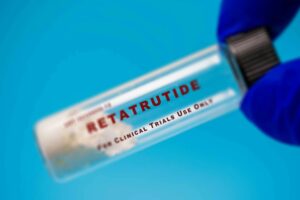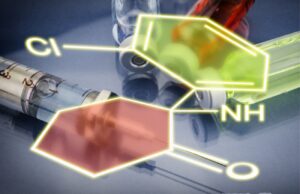Why Even Minor Head Trauma Matters
Most people associate brain injuries with dramatic sports collisions or violent accidents, but research shows that even seemingly minor head trauma—such as bumping into gym equipment or heading a soccer ball—can have long-term consequences. These events, often overlooked or shrugged off, can spark subtle damage inside the brain that may not manifest until decades later.
The medical community now classifies these incidents as mild traumatic brain injuries (mTBIs). While they may not lead to immediate loss of consciousness or hospitalization, they can trigger chemical disruptions, blood flow irregularities, and neuroinflammation that gradually affect cognitive performance, hormone production, and emotional regulation.
The Delayed Explosion: How Brain Injuries Unfold Over Time
A head injury doesn’t always cause symptoms right away. Like a lit fuse, the effects of brain trauma may slowly build until noticeable dysfunction finally surfaces—often years later. This progression is due to a combination of oxidative stress, damaged neural connections, and cumulative strain on brain tissue.
Early symptoms that may appear weeks or months after a head injury include:
- Memory issues or brain fog
- Difficulty concentrating or multitasking
- Headaches, dizziness, or fatigue
- Emotional disturbances like anxiety or irritability
- Sleep disruptions or poor heart rate variability
Over time, unresolved head trauma can lead to more serious conditions such as cognitive decline, chronic migraines, PTSD, and hormone imbalances.
Hidden Hormonal Damage from TBI
One lesser-known but significant consequence of brain injury is hormonal disruption. The brain—especially the hypothalamus and pituitary gland—regulates key hormones such as testosterone, cortisol, DHEA, and pregnenolone. Damage to these regions may impair the body’s ability to produce and balance hormones, leading to symptoms like:
- Fatigue and low motivation
- Depression or mood swings
- Reduced libido
- Muscle weakness or weight gain
These hormonal deficiencies may appear in middle age or later in life, often without an obvious connection to the original head injury. However, when clinicians trace the root cause, a history of TBI frequently emerges as a common link.
What Increases Your Risk of Long-Term Brain Damage?
While anyone can experience head trauma, certain factors make the brain more vulnerable to lasting damage:
- Age: Children and older adults have less structural protection and slower recovery.
- Repetitive Injuries: Multiple concussions compound damage over time.
- Neck Weakness: Poor neck strength allows greater head movement during impact.
- Genetics: Carriers of the APOE-e4 gene are more susceptible to cognitive decline after injury.
- Lifestyle: Poor sleep, hydration, stress, and nutrient deficiencies weaken the brain’s ability to heal.
- Health Conditions: Conditions like diabetes, high cholesterol, and high blood pressure impair circulation and increase neuroinflammation.
Supplements That Support Brain Recovery
Fortunately, there are several science-backed supplements that can support the brain’s resilience before and after trauma. These nutrients help regulate inflammation, restore neurotransmitter function, and improve cognitive clarity. Key options include:
- Omega-3 fatty acids (3000 mg/day): Critical for reducing inflammation and supporting brain cell membranes.
- Magnesium threonate (1000 mg/day): Shown to enhance cognitive function and cross the blood-brain barrier more effectively than other forms (PubMed).
- Curcumin: A powerful antioxidant that modulates inflammatory cytokines after brain trauma.
- Vitamin D3 (2000 IU/day): Supports brain and immune function.
- CoQ10 (100 mg/day): A mitochondrial enhancer that protects neurons from oxidative stress.
- B-complex (methylated): Supports brain chemistry and neurotransmitter synthesis through methylation processes.
- Probiotics (5–10 billion CFUs): Promotes gut-brain axis balance, particularly important since head injuries often trigger gut lining disruptions (i.e., leaky gut).
After an acute injury, these doses should be temporarily increased for 24–48 hours to accelerate recovery, then tapered back under professional guidance.
Other Therapies That Can Help
In addition to supplements, several non-invasive therapies can support brain healing and neuroplasticity:
- Red light therapy: Especially mid- or near-infrared, improves cellular energy and recovery.
- Photobiomodulation: Targets the visual cortex through light stimulation, enhancing neural activity.
- Meditation and breathwork: Stimulates the vagus nerve, activates the parasympathetic system, and improves brain-body communication.
- Neck-strengthening exercises: Reduce the severity of impact by stabilizing head movement during contact.
- Brain engagement activities: Puzzles, reading, and mental challenges keep neurons firing and support long-term cognitive resilience.
Early Detection Is Key to Prevention
Many individuals dismiss early symptoms of brain trauma, assuming they’re just tired or stressed. But even subtle signs—like fogginess, poor memory, or irritability—could indicate a deeper issue. Addressing these changes early gives you the best chance of reversing or halting further neurological decline.
By the time chronic issues such as depression, anxiety, hormonal imbalance, or sleep dysfunction set in, the damage may already be more difficult to treat. That’s why integrative medicine emphasizes catching problems during the early phase, not after they’ve fully manifested.
How Head Injuries Can Lead to Dementia or Alzheimer’s
One of the most concerning risks of traumatic brain injury is its potential link to neurodegenerative diseases. Studies show that head trauma can trigger chronic inflammation and amyloid plaque formation—both of which are associated with Alzheimer’s and other forms of dementia.
Additionally, TBIs can weaken the blood-brain barrier and impair the brain’s ability to clear toxins, accelerating cognitive decline over time. People with genetic predispositions such as APOE-e4 may face an even higher risk.
One meta-analysis confirmed that even a single TBI significantly increases the risk of dementia later in life, highlighting the importance of both prevention and early intervention.
Final Thoughts: Protect Your Brain Like You Would Your Heart
Your brain is your command center, and its health affects every aspect of your life—from your memory to your mood to your hormones. Whether you’re a former athlete or someone who’s simply had a few bumps and falls, it’s never too early—or too late—to take your brain health seriously.
Support your brain proactively with smart supplementation, regular exercise, proper sleep, and mental stimulation. And if you suspect even a minor head injury, don’t ignore it—address it with professional guidance and the integrative strategies outlined here.
Video Summary
For more evidence-based nutrition and fitness tips, subscribe to our channel: https://www.youtube.com/@Vitality-and-Wellness
Looking for extra help with your fitness goals? Check out the personalized Nutrition Program at Parkway Athletic Club: parkwayathleticclub.com/nutrition
Disclaimer: This content is for educational purposes and does not replace personalized medical advice.



